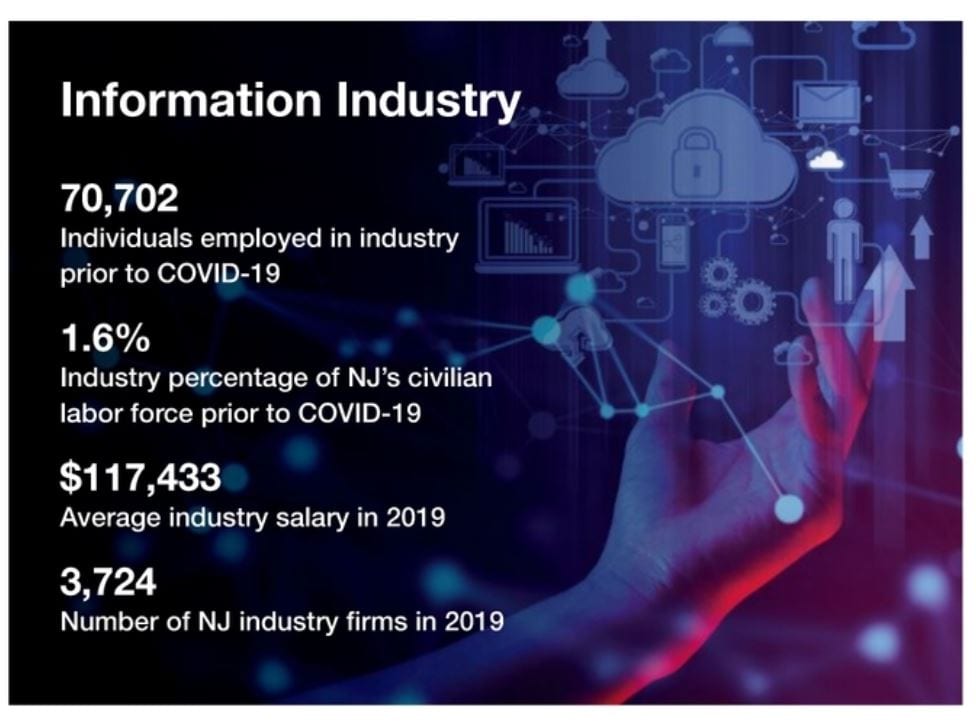Internet of Things Redefines Information Industry in NJ
The “Internet of Things” (IoT) has redefined the information industry, particularly in sectors like software, devices & infrastructure, IT, business services, telecommunications services, and new emerging technology sectors. As the industry continues to innovate into the future, software development, cybersecurity, data and infrastructure will be key focuses.
Difficulties recruiting a qualified, diversified workforce, accompanied by industry regulation and balancing the risks and rewards of incorporating new technologies, may be key factors contributing to the decreasing presence of information firms in the Garden State.

Trends: The information industry lost 11,311 jobs (or 14.3% of total industry employment) from 2010 to 2019, with total employment declining to under 68,000 jobs in 2019, according to the US Bureau of Labor Statistics (BLS). Prior to COVID-19, the industry employed 70,702 individuals or 1.6% of the state’s civilian labor force, according to the BLS.
The number of information firms also decreased from 4,046 in 2010 to 3,724 firms last year. Losing 8% (or 322) information firms in a single decade is a trend that suggests a fading state-level industry.
Wages: On average, an information worker in New Jersey earned $117,433 in 2019, an increase from $86,398 in 2010, according to the BLS. Workers in Somerset County earned the most, with average earnings of $197,147 in 2019, while workers in Cape May County were paid the least, earning an average $45,557.
Average annual wages varied greatly by county in 2019. For example, nine counties earned six-figure salaries on average, while Cape May ($45,557), Gloucester ($55,282), Cumberland ($56,284), Atlantic ($57,296), and Warren ($58,252) counties earned less than $60,000 on average in 2019. Cape May County is the only county in New Jersey where information workers earned on average less than $50,000 in 2019.
Innovations: According to Focus NJ’s Future of Work – Industry Series Study, as the world continues to advance toward a digital economy, there is a continual shift toward “non-physical outputs.” This means that there will continue to be an increased focus on service delivery, computing, data processing, IT services, communications services, and internet publishing.
Skill Sets for the Future: Individuals working in the information industry are already well accustomed to working with the latest technologies and artificial intelligence. According to the Future of Work – Industry Series Study, skill sets of the future include IoT software, IoT hardware, cloud computing, robotics, drones, big data, analytics, next generation security, AI platforms, and application integration. Because of the booming digital economy, jobs in the information industry are in high demand. Because they require highly skilled workers, these are also high-paying jobs.
**This content was originally created for the NJ Business Magazine**





